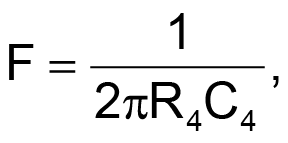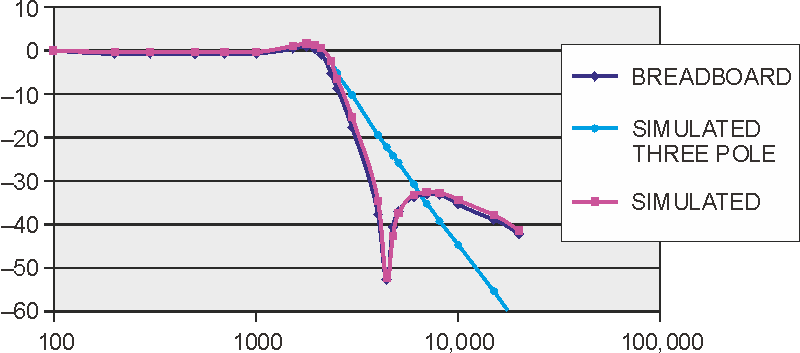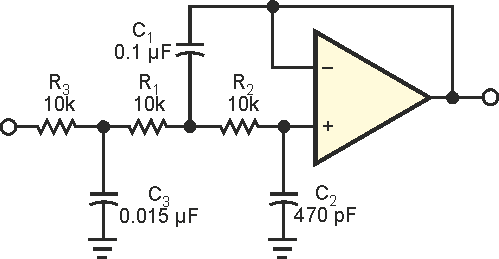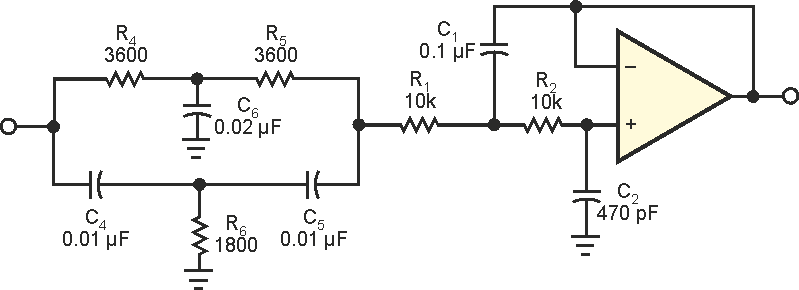Doug Glenn
EDN
The well-documented Sallen-Key active filter is a staple of analog design. This Design Idea shows a way to obtain better roll-off by adding just a few common passive components. Figure 1a shows a typical implementation of a three-pole, lowpass version. In operation, you adjust the ratio of capacitors C1 and C2 to give a peaked response for the two poles within the feedback loop. The peaked response compensates for the initial roll-off in the third pole formed by the R3-C3 section at the input. In Figure 1b, a twin-tee notch filter replaces the R3-C3 section at the input.
|
||||||
| Figure 1. | The addition of a twin-tee network (b) considerably improves the roll-off rate of the circuit (a). |
|||||
The notch frequency,

is equal to approximately twice the desired cutoff frequency.
 |
||
| Figure 2. | The improved cutoff rate of the filter results in a quasi-elliptical response. |
|
Select a value for R4 that's approximately one-third to one-fourth the value of R1, and then adjust R4 as needed to allow use of standard capacitor values. The graph in Figure 2 shows the improvement in the cutoff rate of the filter; the result is a quasi-elliptic response. A breadboard of the circuit in Figure 1b uses 5% parts. The measured results show good agreement with the Spice simulation. To take advantage of the faster roll-off, just scale the frequency and impedance to your application. The highpass dual of this circuit works as well as the lowpass version.


